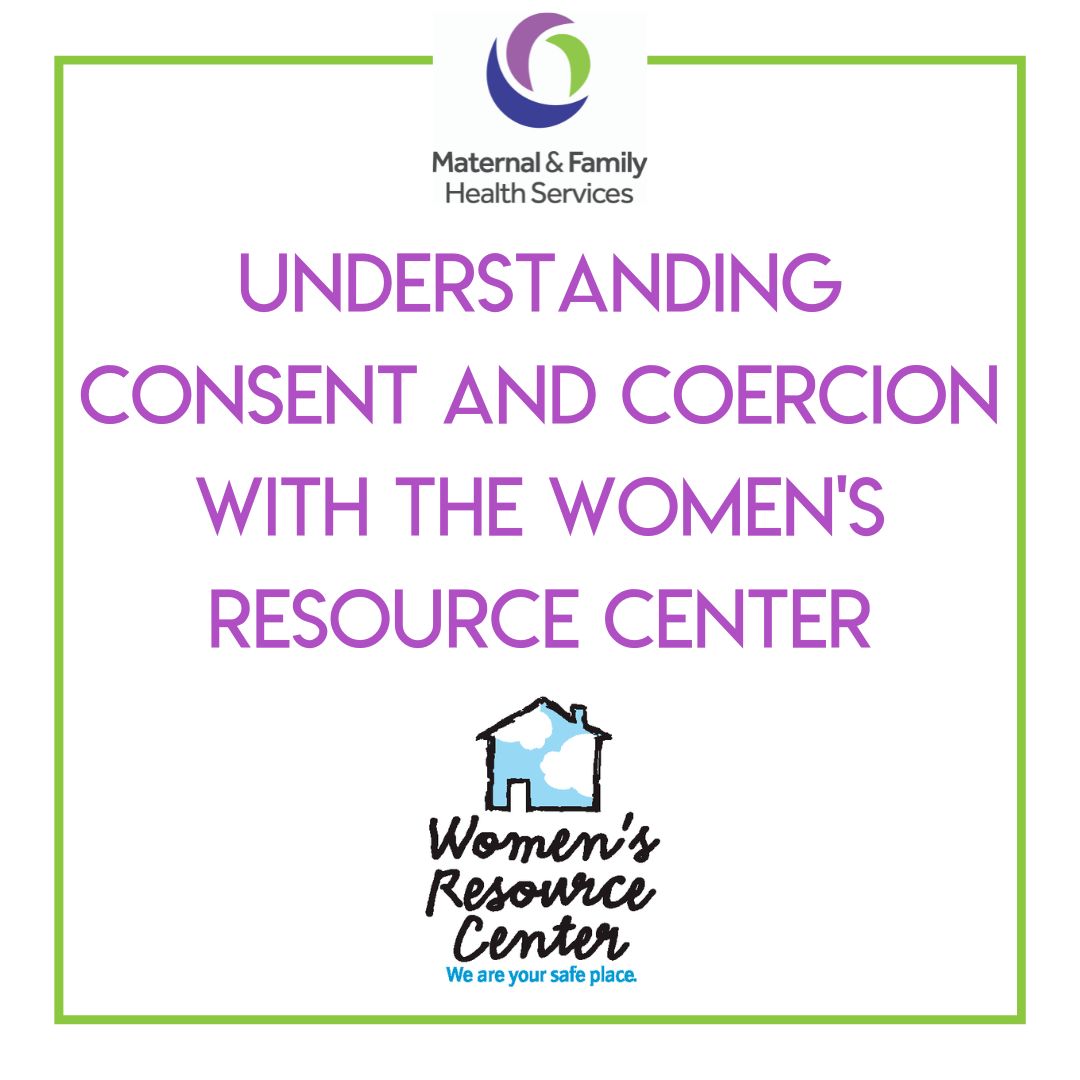Sexual Health Week: Understanding Sexual Coercion and Consent

MFHS is recognizing Sexual Health Week in partnership with the Women’s Resource Center by talking about the important issues of consent and sexual coercion.
In a healthy relationship, both partners feel comfortable with the level of physical activity, whether that means holding hands, kissing, touching, and/or having intercourse. There should be active consent from both parties.
If someone makes you feel obligated or forced to do something you don’t want to, you may be experiencing coercion. Sexual coercion is defined as “the act of using pressure, alcohol or drugs, or force to have sexual contact with someone against his or her will” and includes “persistent attempts to have sexual contact with someone who has already refused.”
Sexual coercion can also be more subtle. It may help to think of sexual coercion as a spectrum or a range. It can vary from someone verbally egging you on to someone actually forcing you to have contact with them. It can be verbal and emotional, in the form of statements that make you feel pressure, guilt or shame.
Consenting to sexual activity should be enthusiastic and not something someone feels compelled or forced to do. It shouldn’t be assumed, and it’s ok to change your mind if you begin to feel safe or uncomfortable. If you ever have doubts, it’s always wise to talk with your partner and make sure you are both comfortable and communicating clearly.
If you have experienced sexual coercion or problems with consent, there are organizations that are there to help. The Women’s Resource Center provides comprehensive services regardless of gender or sexual identity for victims of domestic violence, sexual assault, dating violence and stalking in Lackawanna and Susquehanna Counties. Their services include a crisis hotline, crisis counseling, emergency shelter, safe housing, legal services, support services, community education and advocacy. If you or someone you know may be in an abusive relationship, you can call the Women’s Resource Center Hotline at 570-346-4671 or 1-800-257-5765 to talk about your concerns and develop a safety plan.
